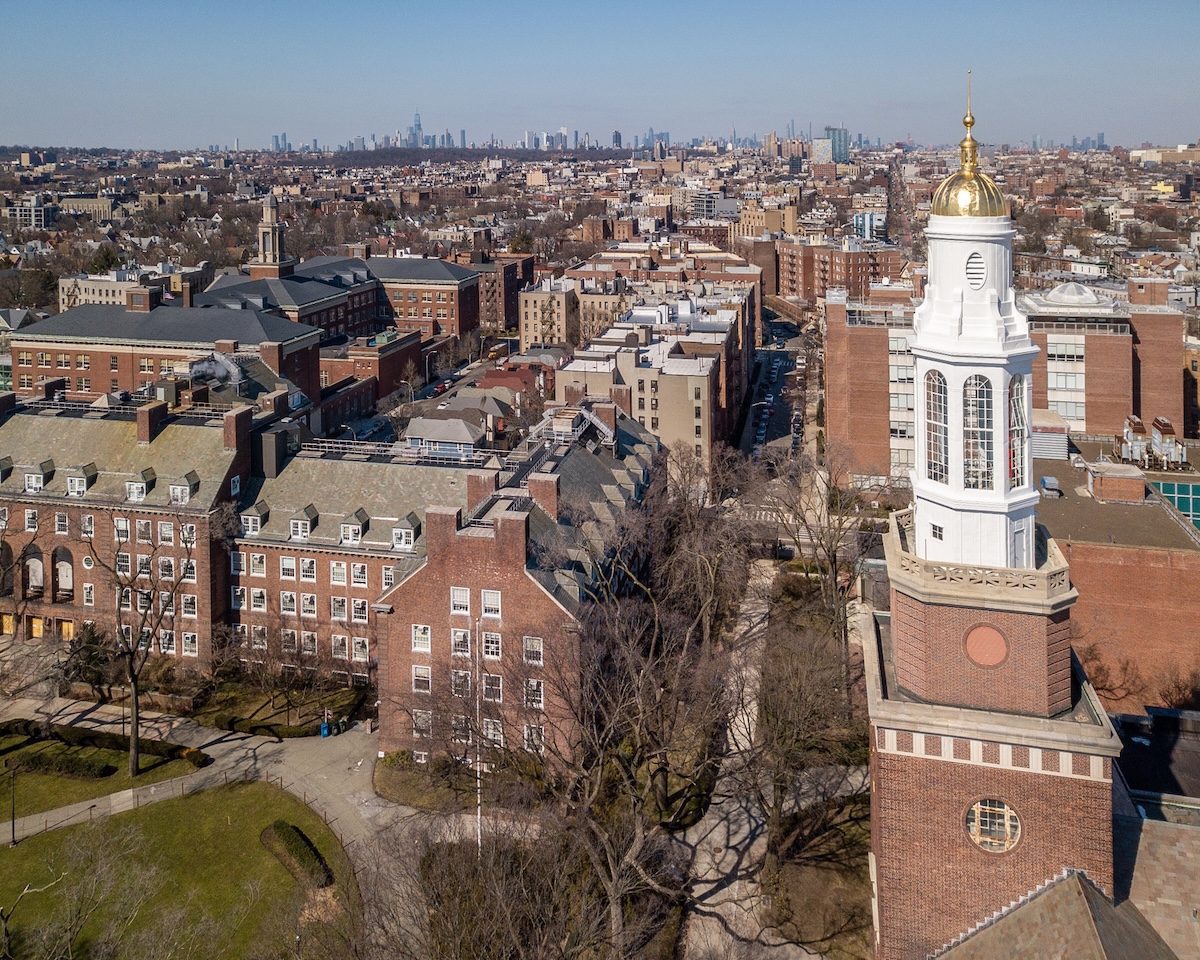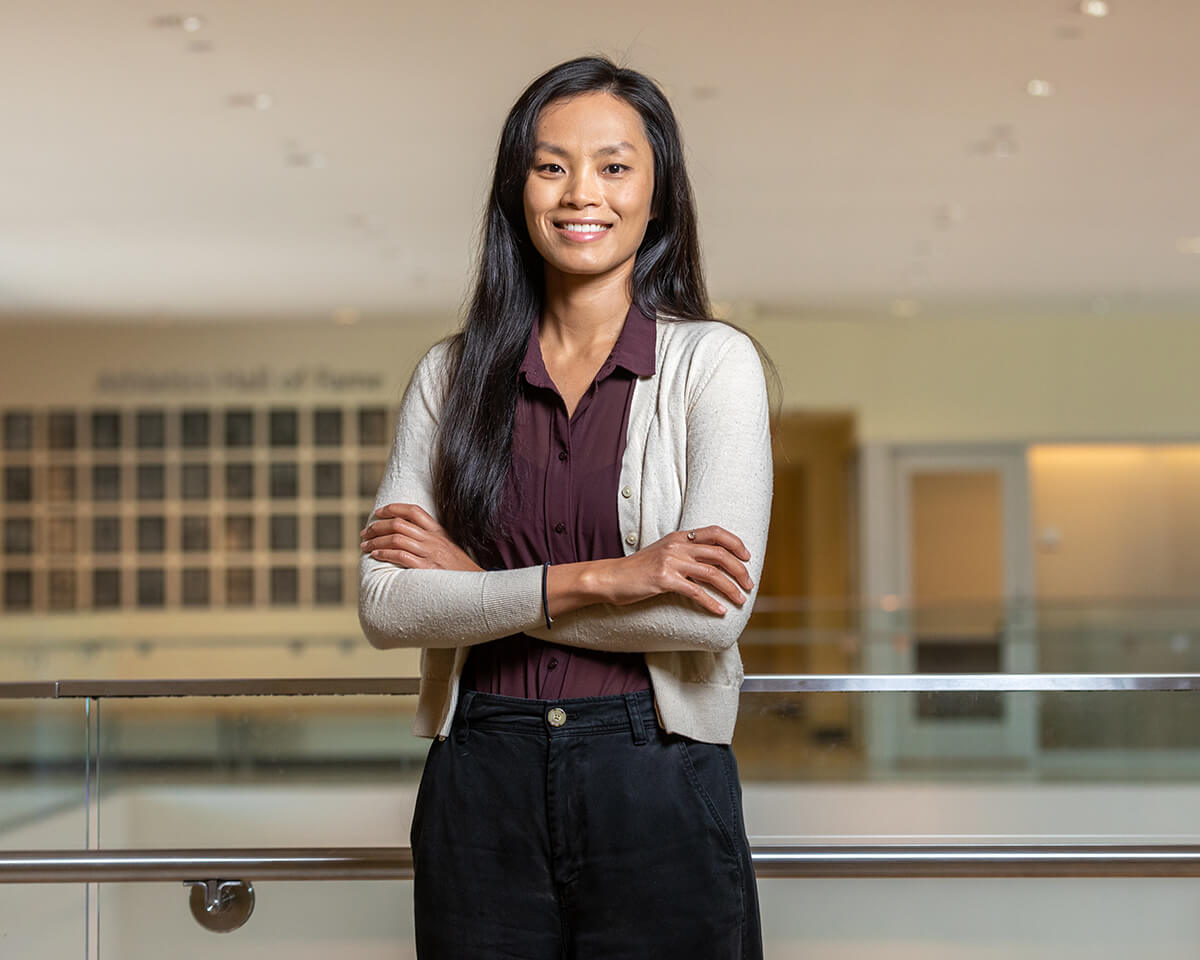For close to 100 years, Brooklyn College has grown into an engine of socioeconomic mobility for immigrants and first-generation college students who hail from 136 countries and speak 91 different languages. But what are the societal benefits of investing in immigrant and diverse populations? A recent economic impact study suggests quite a lot.
When combining operations spending impact, student spending, and—perhaps most importantly—alumni impact, Brooklyn College added $2.6 billion in income to the New York City economy. Using data from the 2021–22 fiscal year, the study measured how Brooklyn College positively affects the city and the benefits the college generates in return for the investments made by its key stakeholder groups—students, taxpayers, and society—by examining two key areas: economic impact and investment analysis.

Brooklyn College President Michelle J. Anderson
“Investing in Brooklyn College is a win-win for our communities and our students,” said Michelle J. Anderson, president of Brooklyn College. “Our world-class staff and faculty not only equip students with the tools needed for personal success but empower them to contribute significantly to the regional economy. We are proud to be one of the leading institutions for social mobility and to be a beacon for young people looking to receive an unparalleled, affordable education.”
Economic Impact, Graduate by Graduate
According to the study, the total $2.6 billion of income to the New York City economy equaled the sum of the operations spending impact, the student spending impact, and the alumni impact, which supported 20,533 regional jobs.
When looking at the contributions of alumni in particular, Brooklyn College’s education and training provide the greatest impact, as thousands of former students are employed in the New York City area. In FY 2021–22, alumni generated $2.3 billion in added income for the regional economy, equivalent to supporting 17,482 jobs.

Brooklyn Borough President Antonio Reynoso
“It’s fitting that one of Brooklyn’s premier institutions of higher education is one of the greatest economic drivers of our economy,” said Brooklyn Borough President Antonio Reynoso. “With so many young New Yorkers, particularly students of color and children of immigrants, attending Brooklyn College, we must continue to invest in institutions like these that play such a critical role in advancing economic and social mobility.”
When looking at the institution as an employer and large-scale buyer of goods and services, Brooklyn College has had a significant local impact as well. In FY 2021–22, the payroll was $217.4 million, much of which was spent locally on groceries, mortgage and rent payments, entertainment, and other household expenses. In addition, the college itself spent $108.7 million on day-to-day expenses related to facilities, supplies, and professional services. The college’s day-to-day operations spending added $284.6 million in income to the region during the analysis year—a figure equivalent to supporting 2,900 regional jobs.
When accounting for student spending, approximately 8% of students relocated to study at Brooklyn College, and they supported the economy through $52.1 million in added income for the regional economy.
Brooklyn College’s Investment Value
The rate of return for students and taxpayers who invest in Brooklyn College’s return was also substantial.
The 19,234 students served during the study period paid for tuition, fees, books, and supplies. They also took out loans that accrued interest and spent money they would have otherwise earned had they been working instead of attending college. Their investment equaled a present value of $260.7 million, equal to $68.8 million in out-of-pocket expenses and $191.9 million in forgone time and money.
In return for that investment, Brooklyn College’s students will receive a stream of higher future earnings that will continue to grow throughout their working lives. For example, the average bachelor’s degree graduate saw annual earnings of $41,200 higher than a person with a high school diploma or equivalent working in New York. Over a working lifetime, the benefits of a bachelor’s degree over a high school diploma will amount to an undiscounted value of $1.7 million in higher earnings per graduate. The present value of the cumulative higher future earnings that Brooklyn College’s FY 2021–22 students will receive over their working careers is $1.9 billion.
Also, for each dollar students invest in Brooklyn College, they will receive a cumulative value of $7.30 in higher future earnings, also known as a benefit-cost ratio. Annually, student investment in Brooklyn College has an average annual internal rate of return of 21.7%, which is impressive compared to the U.S. stock market’s 30-year average rate of return of 9.6%.
When looking at taxpayer benefits, the education that Brooklyn College students receive generates savings in three main categories: health care, the justice system, and income assistance. Altogether, the present value of the benefits associated with a Brooklyn College education equals $121.6 million in savings to state and local taxpayers.
Total taxpayer benefits amount to $749.6 million, the present value sum of the added tax revenue and public sector savings. The cost to taxpayers is $200.9 million, equal to the amount of state and local government funding Brooklyn College received in FY 2021–22.
As an anchor institution that offers educational opportunities to a student body that regularly ranks near the top of the nation in diversity, the study highlighted the societal benefits created by Brooklyn College. Included in the $6.9 billion of Brooklyn College’s value is $4.4 billion in added student income, $2 billion in added business income, $295.4 million in added income from college activities, and $252 million in social savings related to health, the justice system, and income assistance.
Read more about the impact of a Brooklyn College education from President Michelle J. Anderson here.
About the Brooklyn College Economic Impact Study
The study was conducted by Lightcast, a company that provides colleges and universities with labor market data that helps create better outcomes for students, businesses, and communities. Data and assumptions used in the study are based on several sources, including the FY 2021–22 academic and financial reports from Brooklyn College, industry and employment data from the U.S. Bureau of Labor Statistics and U.S. Census Bureau, outputs of Lightcast’s Multi-Regional Social Accounting Matrix model, and a variety of studies and surveys relating education to social behavior.



